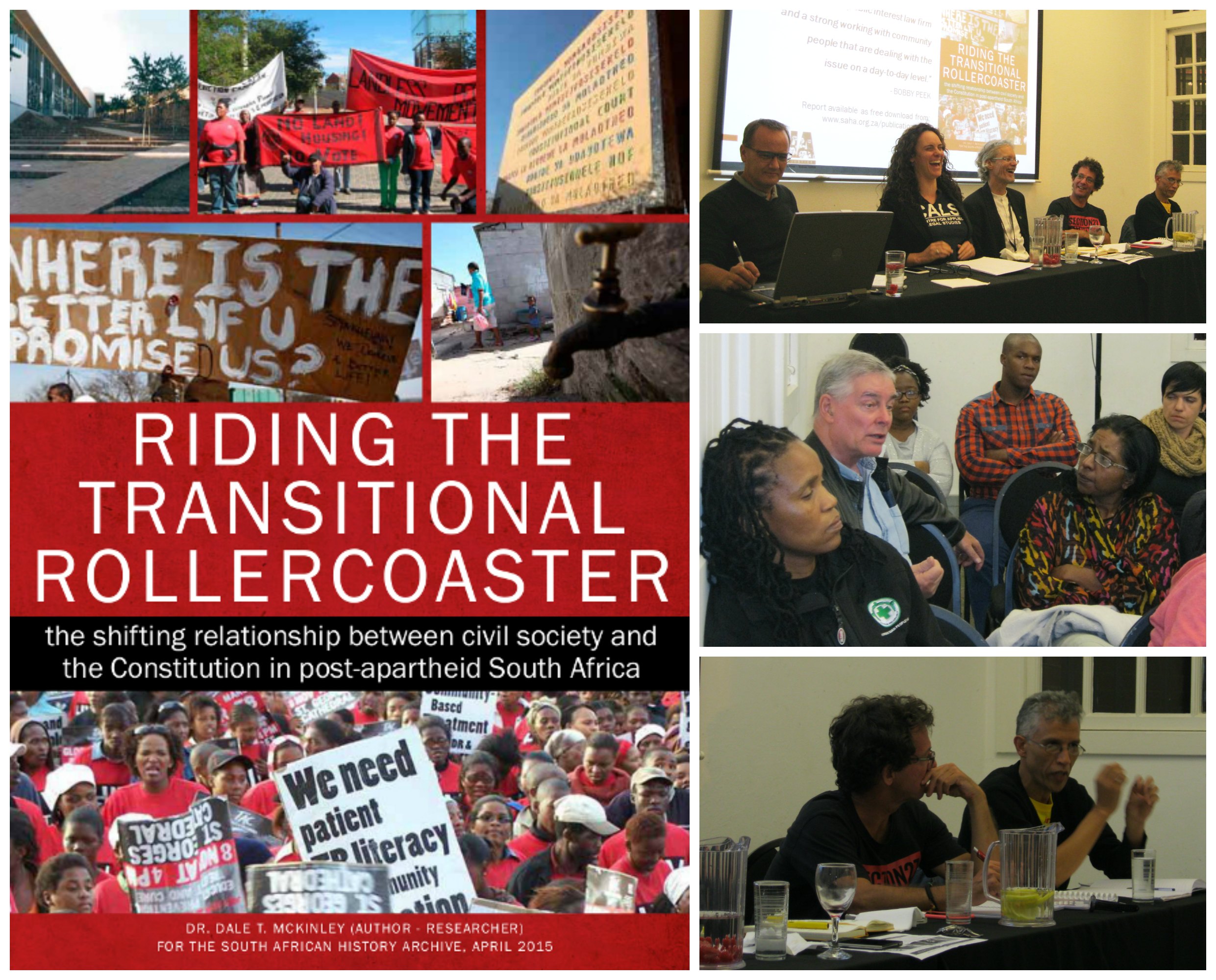|
01 May 2015
REPORT BACK: Launch of SAHA report RIDING THE TRANSITIONAL ROLLERCOASTER

On 23 April 2014, the South African History Archive (SAHA) hosted the launch of a new research report ‘Riding the transitional rollercoaster: the shifting relationship between civil society and the Constitution in post-apartheid South Africa" at Constitution Hill in Johannesburg.
This report is the product of a research project undertaken by SAHA in 2014, exploring the changing relationship between civil society and the South African Constitution, as part of a broader SAHA archival collection project on the Constitution in advance of marking 20 years of the Constitution in 2016.
Drawing on over 30 hours of interviews with civil society activists, community leaders and public interest lawyers, this report traces the constitutional journey over the past two decades to reflect upon:
- the state of the constitutional state
- the impact of the Constitution on the work of civil society
- the changing attitudes towards, and levels of trust in, the Constitution, and;
- the extent to which the Constitution is accessible to civil society as a tool for transformation.
As this report is intended as a catalyst to stimulate debate around how civil society could be engaging with the constitutional project moving forward, the launch event centred around a panel discussion between the lead researcher, Dale McKinley, and three individuals interviewed for the project:
Some of the key issues to emerge in the course of the lively discussion included:
- The extent to which the Constitution, as well as related legislation designed to advance social justice, are viewed as the hallowed preserve of the elite;
- The fact that the process of constitution making is far from over - as Mark Heywood observed, the Constitution invites contest - civil society has an obligation to read and debate judgments and developments on an ongoing basis;
- The urgency of the need for education and empowerment to enable the marginalised in South African society to be able to exercise their rights and the need for civil society to work with and for communities, rather than simply speaking for them - the law has to be taken to the people and the community on the ground supported in organising to take up the struggle themselves;
- The need to remind ourselves that court applications are just one part of using the Constitution, with the constitutional court being only one space (and strategy) for interacting with the Constitution.
- The urgency for civil society to become more concerted and strategic in the ways in which they work together.
SAHA, along with civil society partners, will be hosting similar panel discussions in Cape Town and in Durban in June 2015, and the recordings of all three discussions will be used to produce a SAHA video report to be released in late 2015.
Download the report (free registration with the SAHA website required)
Download interviews from this research, now archived in SAHA Collection AL3297: The Constitution and Civil Society Project Collection |





